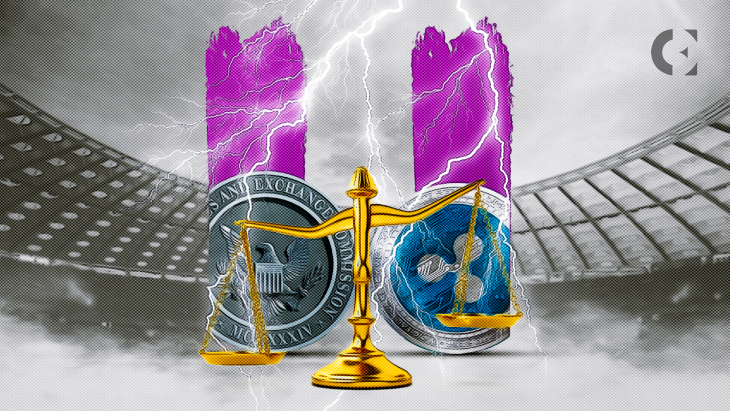- Experts highlighted critical issues in the handling of Ripple’s case against the SEC.
- According to the experts, the July decision has triggered notable developments that may impact pending cases.
- Judge Torres ruled that Ripple’s sales of XRP through secondary trading platforms did not constitute securities transactions.
Web3 experts have highlighted the procedural and factual differences between the handling of Ripple’s case against the Securities and Exchange Commission (SEC) and the Terraform case, as well as the limitations of the Howey Test.
In a recently published article, Alex Drylewski, co-head of Skadden, Arps, Slate, Meagher & Flom Web3 and digital assets group, Daniel Michael, co-head of the firm’s Web3 and digital assets group, and Spurthi Jonnalagadda, an associate in the firm’s white collar defense and investigations group, published an article highlighting these differences.
According to the experts, the July decision by Judge Analisa Torres, a U.S. Judge of the Southern District of New York, has triggered two notable developments that may impact other pending digital asset secondary trading cases. For context, Judge Torres ruled that Ripple’s sales of XRP through secondary trading platforms did not constitute securities transactions, while its direct sales to institutional investors did.
In the article, the experts noted that Judge Torres’ summary decision will, in the near term, remain a non-binding precedent that counsels against a finding that digital asset purchases or sales on secondary trading platforms are “securities” transactions.
They also explained that questions remain regarding the remedies for claims involving institutional sales of XRP tokens following the SEC’s voluntary dismissal of charges against the individual defendants, Brad Garlinghouse and Christian Larsen, two senior Ripple executives.
After highlighting several significant areas of the judgment that could impact future similar litigations, the experts noted that other SEC litigations have directly raised the same or similar issues to those decided by Judge Torres.
They indicated that Coinbase, in its case vs. the SEC, has argued based on that judgment. According to them, the crypto exchange claimed that secondary sales on their platform do not confer any rights against the sellers.
Furthermore, Coinbase argued that the SEC overstepped its regulatory power, noting SEC Chair Gary Gensler’s comment that “only Congress could confer authority to regulate crypto exchanges.”
Notably, the experts explained that some aspects of the arguments by the litigants, based on the July judgment, negate a necessary feature of an investment contract under the Howey Test. Hence, the Ripple decision demonstrates that the Howey test is ill-fitted for secondary market transactions between anonymous buyers and sellers.
Disclaimer: The information presented in this article is for informational and educational purposes only. The article does not constitute financial advice or advice of any kind. Coin Edition is not responsible for any losses incurred as a result of the utilization of content, products, or services mentioned. Readers are advised to exercise caution before taking any action related to the company.









